- Home
- Lorenzo Carcaterra
Sleepers Page 32
Sleepers Read online
Page 32
Michael ambled past the defense table, inches away from John and Tommy, hands still in his pockets, his eyes back on the jury.
“It’s not going to be easy for you to decide,” Michael said. “It’s not supposed to be. Decisions where people’s lives are at stake should be hard. They should take time. They should take a great deal of search and thought. You have to look at the facts, and then beyond them. You have to listen to the testimony, and then read through it. You have to weigh the witnesses and then go past their words and search out their motives. You have to go beyond the one victim and the two defendants. You must look to the lines that connect them.”
Michael stopped at his desk and sipped from a cup of cold coffee. He put the cup down, unbuttoned his jacket, and moved back toward the jury box.
“With this case, I’m asking you to do what few juries are asked to do,” Michael said. “I’m asking you to look at the facts and then look at the reasons for those facts. I’m asking you to find the truth in what you’ve heard, in what you’ve seen and in what you believe. It might be the only way for you to come up with a decision you can live with. A decision that will not cause you doubt. A decision that you will know is the right one.”
Michael had both hands spread across the jury rail, his body leaning against it, his eyes focused on the men and women before him.
“You have to make your decision based on the guilt of two men and the innocence of one, and you have to believe it. You have to go beyond a reasonable doubt; you have to go to where there is no doubt. You take everything you know to be true and then you take all the time you need to move past the truth and past the doubt and come out with a decision we can all live with. A decision that many may question, but you know to be the right one. Because now you are the only judges. In your hands will rest the evidence and the testimony. In your hands will rest the facts. In your hands will rest the fate of two men and the memory of a third. In your hands will rest the truth.
“I have confidence in those hands. I believe in those hands. And I believe those hands will find a verdict that will be filled with truth. And filled with justice. An honest truth and an honorable justice.”
Michael Sullivan then thanked a jury for the last time, walked back to his seat, and put his legal pads into his black briefcase.
“Do you have anything to add, counselor?” Judge Weisman asked.
“No, your honor,” Michael Sullivan said. “There’s nothing else. I’ve said it all.”
21
“LET ME HAVE a hot dog with mustard, sauerkraut, and onions,” Michael told a chubby vendor in a leather flap cap, standing on the sidewalk outside the courthouse. “And let me have a Coke too.”
“No ketchup?” I asked.
“I’m on a diet,” he said without turning around.
It was a snowy, windy Monday afternoon and the jury had been in deliberation since the previous Thursday night. The courthouse rumor mill was working on overdrive, with most of the gossip predicting a verdict of guilty.
“You got a place to eat that?” I asked Michael, pointing to his hot dog.
“Behind you,” Michael said, lifting the bun toward a park bench over my shoulder.
“Okay if I join you?”
“What can they do?” Michael asked. “Arrest us?”
“You did good in there, counselor,” I said to Michael, sitting on the bench, taking a bite out of a pretzel.
“How I did won’t matter until they come back in and hand me a win,” Michael said.
“Will you settle for a loss?” I asked, smiling over at him.
“I can live with it,” Michael said, finishing his hot dog and snapping open his soda can.
“What happens to you now?” I asked. “After this ends?”
“I walk away,” Michael said. “Wait a few weeks and then hand in my notice. After the way I handled this case, there won’t be a rush to keep me from the door.”
“You can switch to the other side,” I said. “Work as a defense lawyer. More money in it, probably, and you’ll never be short on clients. There are always going to be more bad guys than good. The work from John and Tommy’s crew alone will get you a house with a pool.”
“Not for me,” Michael said. “I’ve seen all the law I want to see. It’s time for something else.”
“Like what?”
“I’ll let you know when I know,” Michael said.
“You’re too old to play for the Yankees,” I said. “And you’re too young to take up golf.”
“You’re shooting holes all through my plans,” Michael said, smiling. “I’m starting to panic.”
“You’ll work things out,” I said, finishing the last of my soda. “You always have.”
“It’s time for quiet, Shakes,” Michael said, staring down at the ground. “That I do know. Give things a rest. Find a spot where I can shut my eyes and not have to see the places I’ve been. Maybe I’ll even get lucky and forget I was ever there.”
“It took pieces out of us, where we were,” I said. “What we had to do to get out. Big pieces we didn’t even know we had. Pieces we gotta learn to do without or find again. All that takes time. Lots of time.”
“I can wait,” Michael said.
“You always seemed to know how,” I said. “The rest of us didn’t have the patience.”
“I’ve got to get back in there,” Michael said, standing up and moving toward the courthouse. “The jury may be coming in.”
“Don’t disappear on me, counselor,” I said, my eyes meeting his. “I may need a good lawyer someday.”
“You can’t afford a good lawyer,” Michael said. “Not on your salary.”
“I may need a good friend,” I said.
“I’ll find you when you do,” Michael said. “Count on it.”
“I always have,” I said, watching Michael walk through the revolving doors of the courthouse to the elevators and up nine floors to face a jury’s verdict.
22
THE AREA OUTSIDE Part 47 was crowded with the familiar faces of Hell’s Kitchen. They stood against stained walls, smoking cigarettes and drinking coffee, or sat on long wooden benches, reading the Daily News and Post. Others jammed the phone banks, calling in their bets and checking in on either an angry parole officer or an impatient loan shark.
They were waiting for the verdict.
Walking past them, I shook a few hands and nodded to a few faces before finding an empty spot in a corner near the black double doors.
After fifteen minutes the doors swung open. A court officer, tall and muscular, his gun buckle hanging at an angle, held the knob in one hand, his body halfway in the hall.
“They’re coming in,” he said in a listless voice. “In about five minutes. You wanna hear, better come in now.”
I stood to the side and watched as the crowd slowly trooped in. Then I moved away, and walked over to a bench and sat down. I leaned over, my head in my hands, eyes closed, sweating, shaking, praying that we could finish this the way we planned. I went over everything we did and tried to think of things we should have done. The plan had only one flaw. Its success or failure hinged on the whims of twelve strangers.
“You’re not going in?” Carol asked, standing above me.
“I don’t want to go in alone,” I said, taking my hands from my face.
“You’re not alone,” she said.
“I don’t want to lose either,” I said.
“You’re not going to lose.”
“It sounds like you’ve got all the answers,” I said, standing up and taking her by the arm.
“Maybe I do,” Carol said. “Maybe I do.”
“HAS THE JURY reached its verdict?” Judge Weisman asked, sitting impassively behind his bench.
“We have, your honor,” answered the jury foreman, a stocky bald man in a plaid shirt.
The bailiff took the folded piece of paper from the foreman and walked it over to Judge Weisman. The judge opened the paper and looked down, his face betraying not
hing.
I looked past the wall of heads and shoulders surrounding me and glanced over at John and Tommy, sitting up close to their table, their hands bunched in fists. Danny O’Connor sat next to them, rubbing a hand against the back of his neck, beneath the frayed collar of his shirt. Across from them, Michael sat and stared at the empty witness box. He was taking deep breaths, his fingers twirling a felt-tip pen over his knuckles.
Judge Weisman nodded to the foreman, who stood in front of his seat.
“On the count of murder in the second degree, how do you find the defendant, John Reilly?” Judge Weisman asked.
The foreman bit his lips and looked around the courtroom with nervous eyes.
“Not guilty,” the foreman said.
“On the count of murder in the second degree, how do you find the defendant, Thomas Marcano?”
“Not guilty,” the foreman said.
The courtroom erupted in a thunder of applause, screams, shouts, and whistles, few hearing the judge’s call to order and dismissal of charges against the defendants.
I stood up and hugged Carol.
“You did it, Shakes,” she whispered in my ear.
“We did it,” I said, holding her tight. “We all did it.”
I looked over and saw Michael pick up his briefcase, shake hands with Danny O’Connor, and walk into the crowd, where he was swallowed up by the mass of bodies. I saw John and Tommy smiling and laughing, reaching out for as many hands as they could, cries of not guilty filling the air around us. I saw Judge Weisman walk down from his place behind the bench.
Flashbulbs popped.
A pair of women in the middle of the room began to cry hysterically.
Four young men in the back, heading out of the room, sang the words to “Danny Boy.”
An old lady behind me stayed seated and fingered the beads of her rosary, her lips moving to a series of silent prayers.
The jury members filed out of the box, some with their heads bowed, a few waving to people in the crowd.
Danny O’Connor, all smiles and sweat, walked out of the courtroom to a chorus of men and women chanting his name.
John and Tommy stood by their places, arms in the air, basking in the glory of their moment
Michael Sullivan was already in the elevator, heading down to the lobby, his mission completed, his career over.
I took Carol by the hand and led her out of the courtroom, the loud, happy sound of the crowd following us down the corridor.
It was the sound of justice.
Spring 1980
23
THE LONG TABLE and chairs ran nearly the length of the restaurant’s back room, just off the main dining hall. Pitchers of beer and bottles of Dewar’s and Johnnie Walker Red dotted the cloth, along with candles flickering inside hurricane shells. Two large floral arrangements, resting in the middle of a pair of wicker baskets with half-moon handles, anchored the ends.
A full month had passed since the acquittal. In those few weeks, our lives had reverted back to what they had been prior to the murder of Sean Nokes.
Carol returned to her stack of social service files, helping troubled teens and single mothers fight a system that had neither time enough nor funds enough to care.
John and Tommy went back to the streets, running the West Side Boys, drinking heavily, and once again breaking laws with abandon. No one had expected them to change. It was too late.
King Benny went back to his club and Fat Mancho returned to his bodega.
I was promoted from clerk to reporter trainee, covering the entertainment beat. It meant I got to go to the movies for free, just like I used to do when I was a kid. Except now I didn’t have to sneak my way in.
Michael was the only one of us who had made any significant change in his life. As he had promised, he had resigned from his job, three weeks after working the losing end of a can’t-miss case.
I WAS THE first to arrive and chose a seat at the center of the table, my back to the wall. A young waiter in white shirt and black bow tie came into the room and asked if I wanted anything. I looked at the line of beer and whiskey and smiled.
“This is an Irish table,” I said. “And I’m Italian.”
“What’s missing?” the waiter asked.
“Wine.”
“Red or white?”
“Both,” I said.
The waiter bumped into John and Tommy on his way out of the room. I stood up and we stared at each other for a few minutes. Then they both came around the table and squeezed me in a long, silent hug.
“I don’t even know how to fuckin’ thank you,” Johnny said, holding me even tighter.
“I can’t believe what you did,” Tommy said. “And I can’t believe you got away with it.”
“What do you mean?” I said. “Don’t tell me you really killed him?”
They both laughed, and loosening their hold, pulled back chairs on both sides of me.
“Besides, I had nothin’ to do with it,” I said, sitting down as well. “It was all Mikey. It was his plan.”
“I gotta tell you,” John said, pouring himself a glass of beer. “When I first heard he took the case, I was gonna have him burned.”
“What stopped you?”
“He was a friend,” John said. “And if you’re gonna go away on a murder rap, who better to send you?”
“Then, the way he was handlin’ his end of the case, I thought he just sucked as a lawyer,” Tommy said. “I started feelin’ sorry for the bastard.”
“Never feel sorry for a lawyer,” Michael said, standing in front of us, a wide smile on his face.
“Get over here, counselor,” John said, grabbing Michael’s arm and dragging him around the table.
Tommy rushed in from the other side and squeezed me against them as they hugged. We were nothing more than a small circle of arms and crunched faces.
“You’re the real count!” John shouted. “Alive and well and working in downtown New York City!”
“Not after this week,” Michael said. “This count’s on the dole now.”
“What’d you do with all that buried treasure?” Tommy asked. “Gamble it away?”
“How do you think we paid off King Benny?” Michael said.
Carol stood in the entryway, her arms folded, laughing and shaking her head.
“What is this?” she asked. “A gay bar?”
We turned when we heard her voice. Her hair was freshly cut and styled, and she wore a short, tight black dress, a black purse hanging off her shoulder on a long strap.
“It was,” John said. “Till you walked in.”
“You want us to hug you too?” Tommy asked.
“How about just a hello,” Carol said.
“How about a kiss to go with the hello?” John asked.
“Deal,” Carol said, coming around to our end.
“Hurry up,” I said. “Before the waiter comes in.”
“Yeah,” Tommy said. “Then we’re gonna have to kiss him too.”
“I saw him on my way in,” Carol said. “He’s cute. I’d throw him a kiss.”
“That’s funny,” John said. “That’s what Shakes said.”
We sat around the table, ordered our dinners, poured our drinks, and talked until night turned to morning.
We talked about everything we could think of, five friends with so many shared moments, afraid to let our time together come to an end. We talked about everything but the trial. And the months we had sworn never to resurrect with speech.
Carol let loose her frustration with city bureaucracy and the battles she lost each day.
John and Tommy talked about their lives of crime. They knew it was a fast lane that could end only with a bullet or iron bars. But it was the only way they knew to feel in control, to push away the demons that gnawed at them during their rare sober moments.
Michael was at peace with his decision and curious about where it would take him. He had saved enough money to live for a year without working and had already
invested in a one-way ticket on a plane leaving for London the following weekend. He had made no plans beyond that.
I half joked that my career choices were narrowed down to two. I was either going to be a reporter or an usher at one of the theaters whose running times I knew so well.
Eventually, the beer, wine, and liquor took hold and we switched gears, laughing over simpler times, in the years before Wilkinson starved us of laughter. Over and over we recalled our many pranks, relishing the freedom and foolishness a Hell’s Kitchen childhood allowed.
“You guys remember when you formed that stupid singing group?” Carol asked, pouring water into a glass.
“The Four Gladiators,” Michael said, smiling. “Best quartet to ever hold a Hell’s Kitchen corner.”
“Remember what Shakes wanted to call the group?” Johnny said, lighting a cigarette.
“The Count and His Cristos,” Tommy said. “Man, that woulda sent albums flyin’ outta the stores.”
“We weren’t that bad,” I said. “Some people wanted to hear us sing.”
“That group from the deaf school don’t count,” John said.
“Why not?” I said. “They applauded.”
“You guys were awful,” Carol said, laughing. “Kids cried when they heard you sing.”
“They were sad songs,” I said.
“Fat Mancho was gonna be our manager,” Tommy said. “And King Benny was gonna be the bankroll. You know, get us suits and travel money, shit like that.”
“What happened to that plan?” Carol asked.
“They heard us sing,” I said.
“Fat Mancho said he’d eat flesh before he put his name next to ours,” John said.

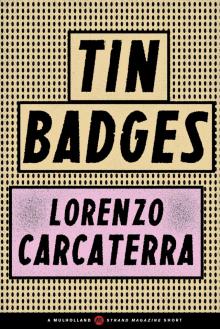 Tin Badges
Tin Badges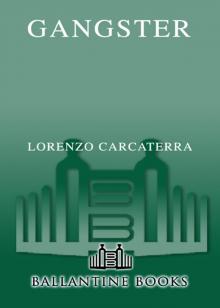 Gangster
Gangster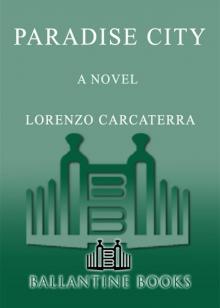 Paradise City
Paradise City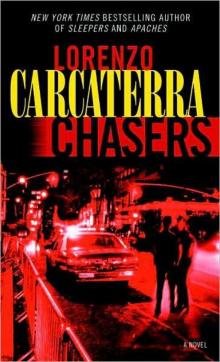 Chasers
Chasers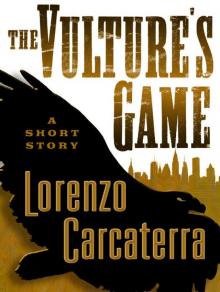 The Vulture's Game
The Vulture's Game Payback
Payback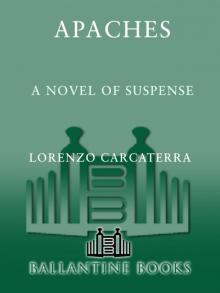 Apaches
Apaches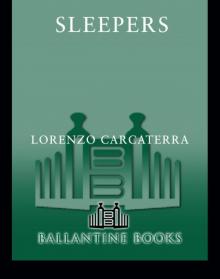 Sleepers
Sleepers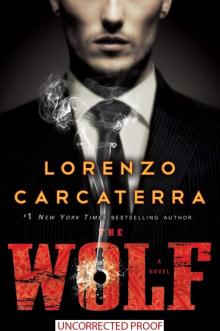 The Wolf
The Wolf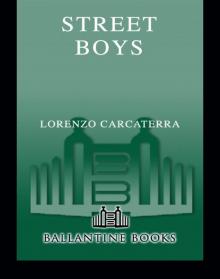 Street Boys
Street Boys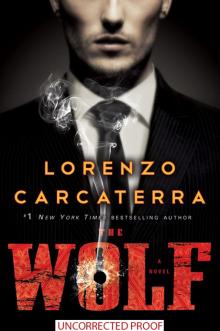 The Wolf: A Novel
The Wolf: A Novel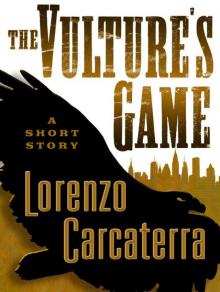 The Vulture's Game (Short Story)
The Vulture's Game (Short Story)